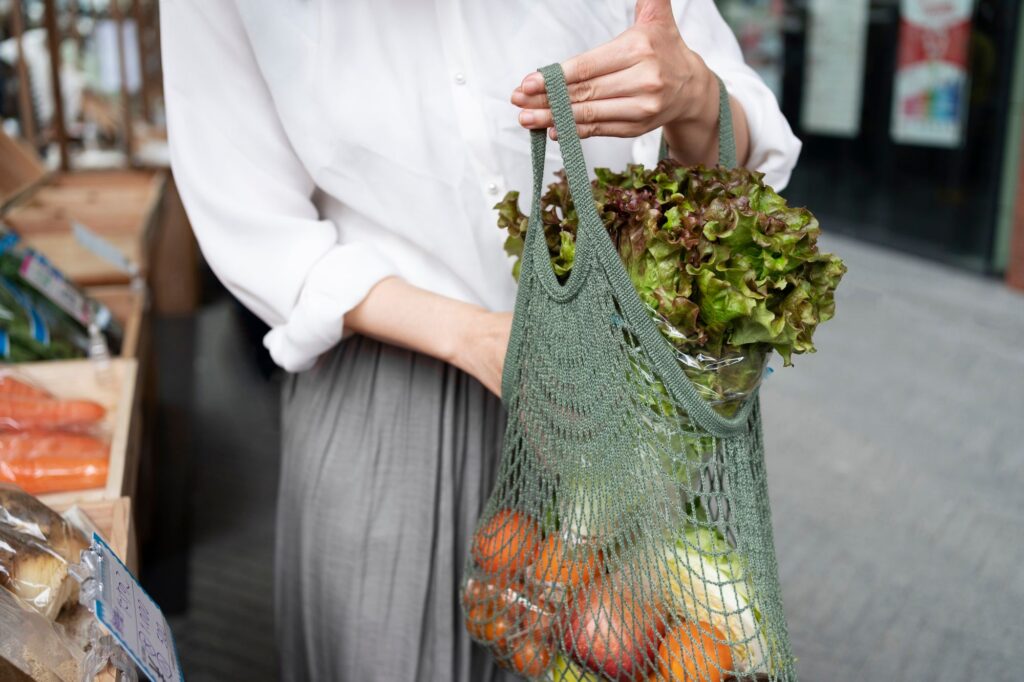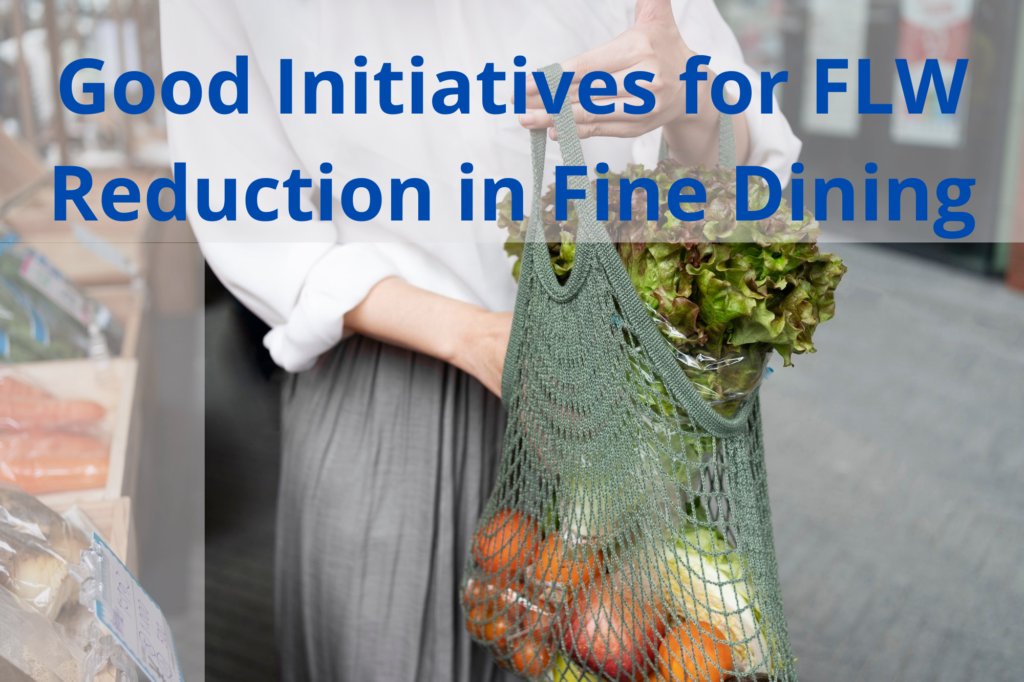By: Tamás Szallabek
From: VIMOSZ
In our last article, we went through the state of food loss and waste (FLW) in the fine dining sector and potential causes behind it. To not end this story on a sour note, let us take a look at the good initiatives and practices that are already in existence. The demand for sustainable solutions has led to the rise of ‘green’ restaurants, which are gaining popularity. Simultaneously, the financial benefits of green investments in the restaurant sector (Champions 12.3, 2019) are becoming more recognised, further expediting the transition.

When we think of the validation of high-end cooking and service, Michelin stars immediately come to mind. In 2020, Michelin introduced the Green Star, which is awarded to restaurants leading the industry in sustainable practices. These businesses must have high ethical and environmental standards and are working hard to achieve high levels of sustainability. Many restaurants work directly with farmers, growers and fishermen that use sustainable and regenerative methods to supply quality ingredients. Some of them even contribute to local and national sustainable and educational actions to “give back to the community”. While the specific requirements for earning a green star are not publicly disclosed, it undoubtedly encompasses waste management, a significant aspect of sustainability. One of the well-known recipients of the green star is Silo, in London. They are famous for redefining what a zero-waste restaurant can achieve. Other famous places such as Rutz, Osteria Francescana and Maaemo just to name a few.
HOTREC is the largest umbrella association in the European tourism representing the interests of over 2 million business and 10 million employees. The association published the Net Zero Hospitality Roadmap in 2023 that gathers all the useful information for the transition towards a more sustainable sector. The roadmap provides a frameworks and recommendations to achieve a net zero hospitality industry. The publication mainly focuses on the decarbonisation of the sector and not specifically with food waste. Nevertheless, it is a fact that food waste exacerbates climate change and contributes to GHG emissions (U.S. EPA 2021), therefore all the practices include food waste management. The case studies of individual businesses exemplify best practices. For instance, Fotografiska in Tallinn, a zero-waste restaurant that has also received a Michelin Green Star. Onyx Műhely in Budapest, known for implementing their own sustainability strategy, and Život caffe in Poreč, whose efforts have sparked the Zero Waste Croatia movement.
To sum it up, it is clear that achieving sustainable management and a net-zero industry won’t happen overnight. However, it is our duty to do our very best to work towards these goals. We can already see great initiatives and until their procedures do not become new industry standards, the best thing we can do is to support them.
The global demand for more sustainable operations is only going to increase in the future. Therefore, we will see more innovations in the reduction of FLW as well. A big issue that is often overseen is the reuse or upcycling of still-edible food waste. Unfortunately, there is no precise data on the proportion of still-edible food that ends up as waste (UNEP 2021). Nevertheless, we can assume that, based on the operations in a fine dining kitchen, where the majority of waste is generated, there is potential to reuse such ‘waste’ by donating to food banks and charity associations.
Bibliography
Champions 12.3. (2019). ‘The Business Case for Reducing Food Loss and Waste: Restaurants’. https://champions123.org/publication/business-case-reducing-food-loss-and-waste-restaurants
United Nations Environment Programme (2021). ‘Food Waste Index Report 2021’. https://www.unep.org/resources/report/unep-food-waste-index-report-2021
U.S.EPA (U.S. Environmental Protection Agency). (2021). From Farm to Kitchen: The Environmental Impacts of U.S. Food Waste. https://www.epa.gov/land-research/farm-kitchen-environmental-impacts-us-food-waste


It will e interesting to know how they manage to achieve zero waste!!!!What measures did they implemented?